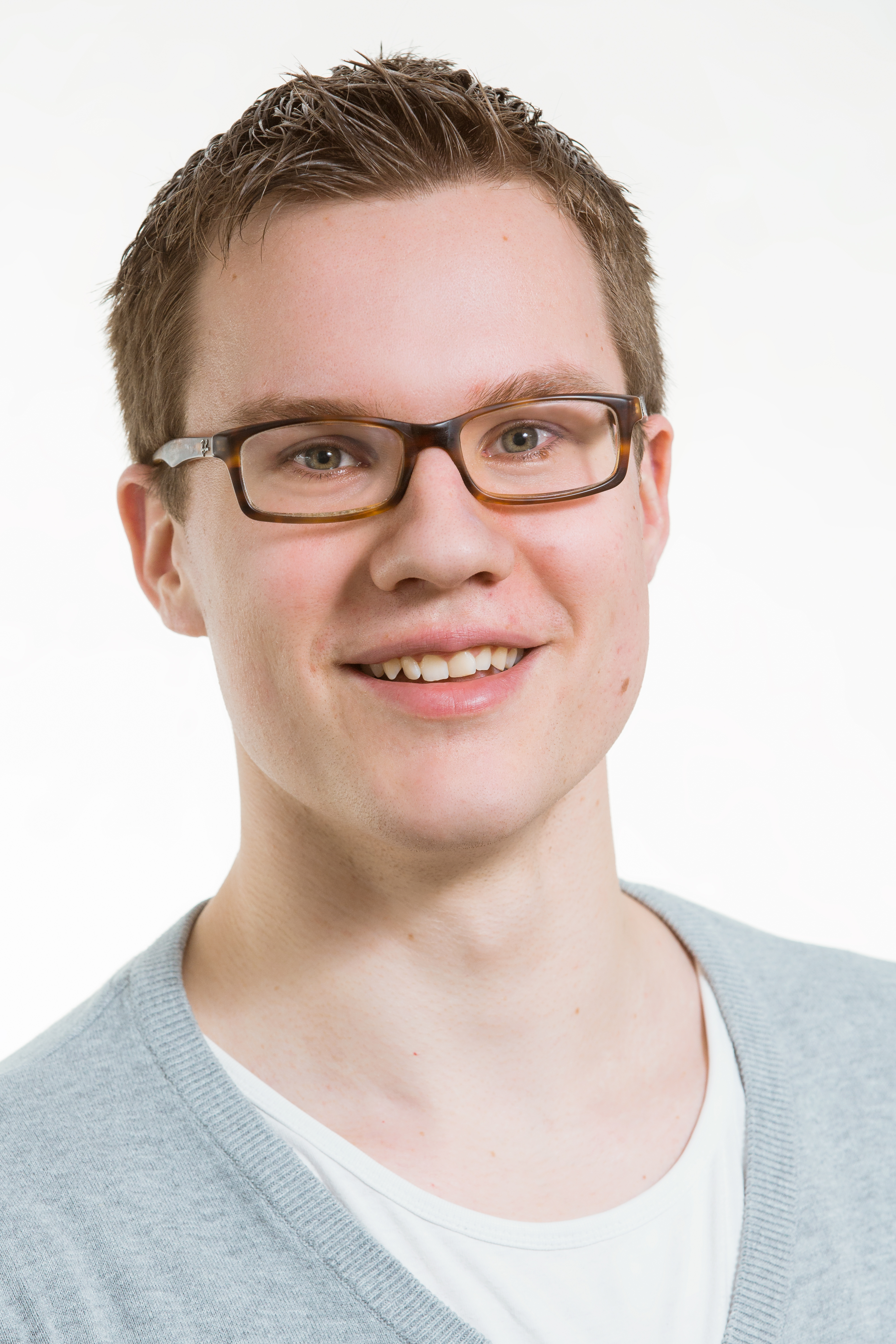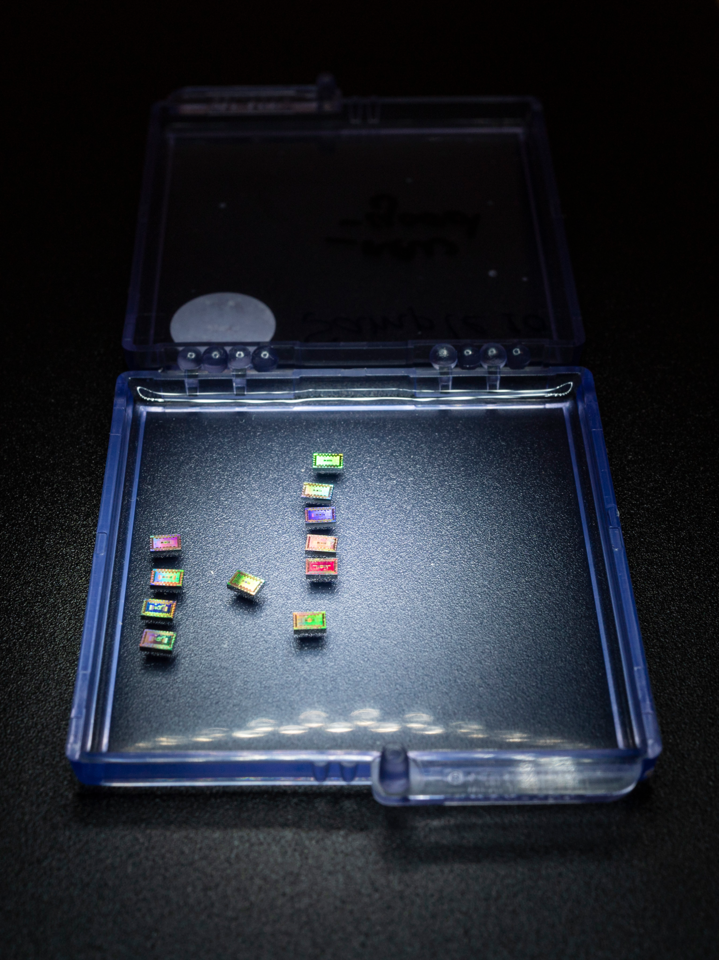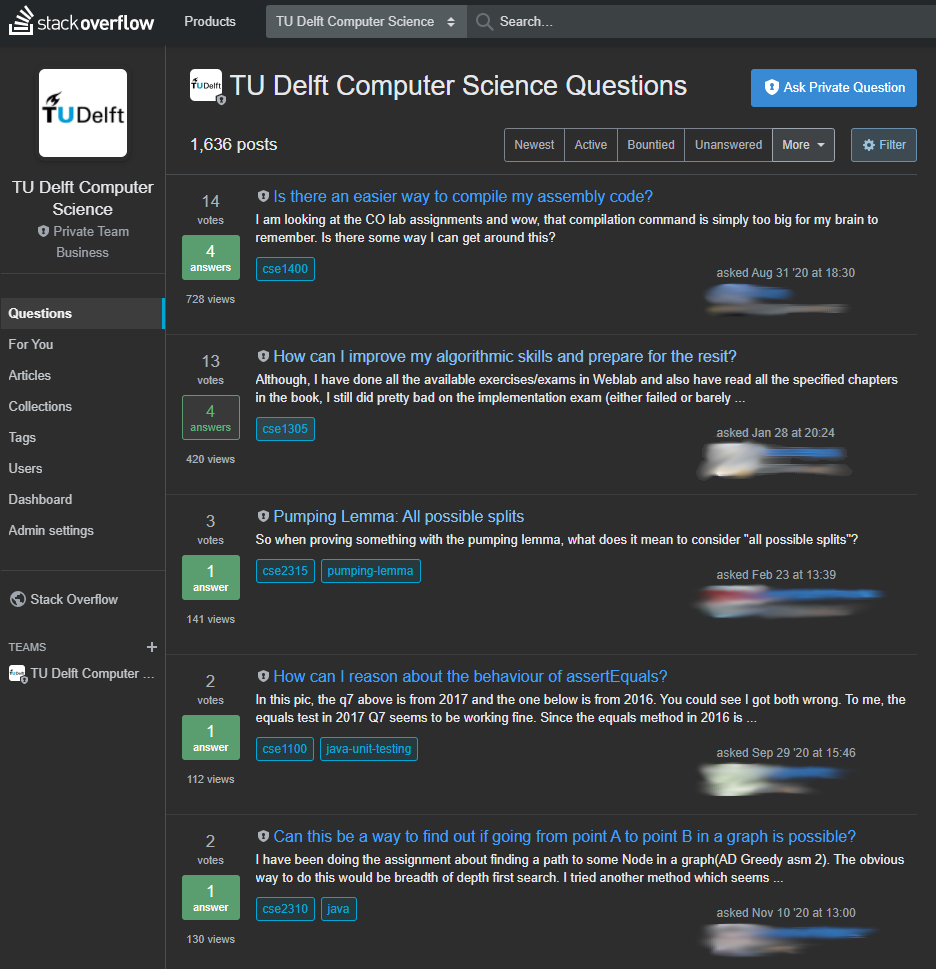Gamified knowledge platform challenges students to help each other
Making smart use of existing resources and experience. That was the starting point for Stefan Hugtenburg, lecturer in the computer science course at the Faculty of Electrical Engineering, Mathematics & Computer Science (EEMCS). He came up with a simple way to motivate the increasing number of IT students to help each other answer study-related questions, which is very beneficial for students, lecturers and staff alike.
Stefan: "The increase in popularity of the program is in itself a positive development, but there is also a downside. The students used to form a close-knit knowledge community, in which they helped each other with assignments and other questions relating to the study. That community threatened to disintegrate: students asked more and more questions, but were less inclined to answer them."
Cross-cohort knowledge exchange
With a 'gamified' knowledge platform, Stefan challenges students of different learning years to share more knowledge. "When I studied computer science, also in Delft, there were 100 first-year students. Of course, I did not know everyone personally, but at least I knew all the faces. Now that, with numerus fixus, there are 500 students in the first year, they know each other less well. As a result, we see two things happening: the group is breaking up into a lot of subgroups, and it is becoming easier to get 'lost' as a student. You are not so easily missed among 500 people. The platform has to ensure that students feel at home on the study program and that they have the feeling that they are part of a community. Especially in corona time, that is of great value."
Friendly competition
The knowledge platform is intended for the more than 2,000 students in the Bachelor's and Master's degree programs in Computer Science. It is based on Stack Overflow, a popular question and answer site for programmers and developers that many beta students already have experience with. Using a scoring system derived from the gaming world, they can earn 'reputation points' for good questions and answers. A form of friendly competition. "And that seems to work," says Stefan. "I've already heard a student say that he started answering more questions when he saw that someone had surpassed him on the leaderboard."
The pilot started in September 2020 with the bachelor students. "Every quarter we added a year-long course. By now, all 34 subjects within the bachelor's program are using it. That comes down to about 1,700 users, including 110 staff members. At the start, we noticed that students needed little instruction. First-year students received a short manual and straight away they get to work on it. So it went quite smoothly. We see the interaction between students improving and are looking at starting with the 500 master students after the summer."
1 environment for all subjects
Students can filter on the subjects or topics from courses they are currently taking, so that they only see the information that is relevant to them. To score points, they can also filter on courses they have taken before and share their knowledge about them. "We allow people to ask general questions about computer science, Brightspace, a paper within the field or personal questions like: Next year I have to choose an elective. Which one suits me best? In this way, we enable cross cohort knowledge exchange for all subjects within one environment," Stefan says.
Increased student satisfaction
Questions are answered quickly until late in the evening or even late at night, which increases student satisfaction. At the same time, the use of students reduces the workload of lecturers and teaching assistants. Two birds with one stone.
Retaining knowledge
An additional advantage is that the use of Stack Overflow builds up a knowledge database. "The forums in our Brightspace environment are deleted at the end of each academic year, which means that a lot of knowledge is lost," says Stefan. "In Stack Overflow, all content is retained that gives students the opportunity to also find answers to questions that have been asked before."
Mid-term evaluation
"In the last 3 quarters, more than 2,200 questions have been asked. Between 50 and 75% of the questions have been answered by students. In Brightspace, this was at most a quarter. When we inquired among the contributors, to which we invited the top 5 of the leaderboard, the gamification element turned out to be their most important drive. Students wanted to stay ahead of others.
We are still going to do an extensive qualitative and quantitative project evaluation, but during a regular evaluation among students, some unsolicited comments were made that we should definitely keep Stack Overflow. Good signals, then.
Logically, we do see a difference between the various courses. More questions from first-year courses than third-year courses, for example, have been answered because there are fewer students to answer them. The questions from third-year students are still mostly answered by the lecturer. We expect that this will decrease as the database is built up over time."
To keep the database up to date, users can tag their questions so that, if they are related to a specific study year, they will no longer be shown at the end of the academic year. So far, this concerns about 170 questions, which is less than 10% of the total. The rest are relevant to keep for future years.
Reduction in workload
Although Stefan still has a lot of work to do to manage everything, the platform has reduced his workload in terms of the number of questions he has to answer. He expects that next year will bring even more time savings as students will already start with a question bank of 100 to 200 questions per course.
Interest from other faculties
Stack Overflow's customers are mainly companies. As far as Stefan knows, TU Delft is one of the few universities that uses it. The Computer Science program has purchased and set up the Stack Overflow environment with support from the SURF Open and Online Education Stimulus Package. "The stimulus package project runs until May 2022, after which we will discuss further funding of the platform with the university. In the meantime, we are looking into the possibility of using Stack Overflow elsewhere within our faculty. And even beyond: I hear that other faculties are already showing interest in our pilot."
Source:
https://www.surf.nl/enhancing-student-interaction-through-a-gamified-knowledge-sharing-platform


